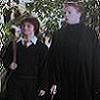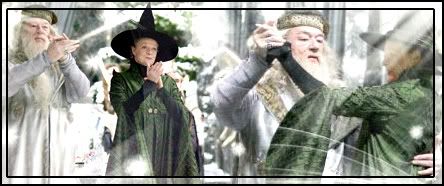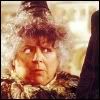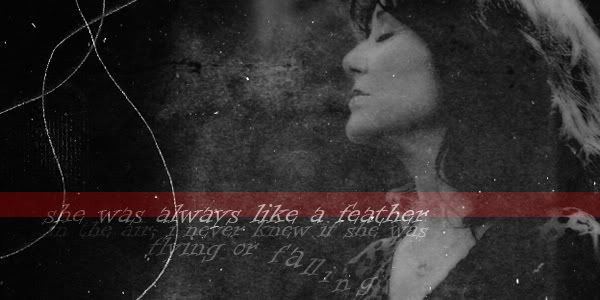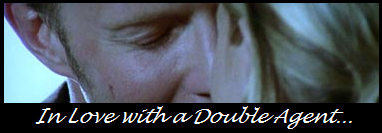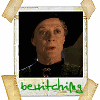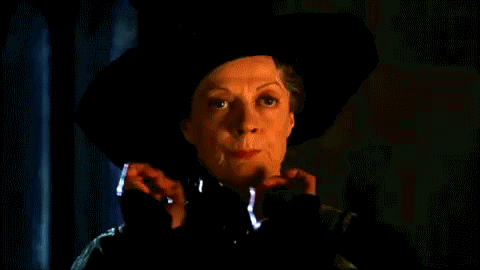Post by ginger newts on Nov 16, 2005 14:13:31 GMT -5
Tips for Writing Better FanFic
Before I start, I’d like to preface this thread by saying that just because I’m a Deputy Headmistress you should not consider these as rules, merely advice. Also, since some of you see me as the resident alpha bitch, let me say that I do not expect every chapter of every fic to be perfect. We all make mistakes, even professionally published books contain typos, however more than one or two mistakes per page is excessive and can be easily corrected. If you find yourself having major problems, try to find a beta reader or ask someone for advice on the particular issue.
Note: If English is not your native language, we understand that some concepts of grammar and spelling are difficult to remember or even understand. We do not expect everyone to write as if they were born and bred speaking the King’s English, hell even Americans aren’t very good with the language. However, if you find yourself having questions about the proper way to express something in English, hopefully this brief guide will be helpful. As always, when in doubt ask someone.
However, if you find yourself having questions about the proper way to express something in English, hopefully this brief guide will be helpful. As always, when in doubt ask someone.
The following can be considered a cheat sheet for some common grammar and spelling errors.
1. Always, always, always double space between paragraphs. Block formatting and long paragraphs that run together with no spaces make a fic extremely hard to read and many people will give up after going cross eyed a few lines in. By double spacing, I mean leave a blank line between each paragraph, as I’m doing in this post.
2. Every time a new character speaks, or there’s new action, a new paragraph should be started. For example:
“Albus! Please come in, I wasn’t expecting you,” Minerva said.
“Thank you, my dear,” Albus said as he entered her rooms.
The two of them took seats on the couch and Minerva offered Albus a cup of tea.
3. Words that sound alike, but are spelled differently. This is something that many writers often mix up, probably half the time by accident and half the time because of not knowing which form of the word to use. Here’s a helpful guide.
To/Two/Too: to – as in “they went to the Great Hall,” “she was about to grade some papers”
two – the number 2, “the two of them walked down the hall together,” “there were two other people in the room”
too – also, in addition to, as well as, an excess of something, “Harry wanted to go to Zonko’s too,” “there were too many people there, she couldn’t talk to him in front of such a crowd”
Their/There/They’re: these get confused a lot
Their – plural possessive, “Albus and Minerva entered their rooms,” “she found their copy of the book under the bed”
There – a place “over there,” “there it is,” “there were four people going to Hogsmeade”
They’re – contraction of they are, “they’re going to Hogsmeade later,” “they’re not going to be happy with what you did”
Your/You’re: also often confused
Your – something belonging to you, “is this your book,” “your hair looks pretty that way”
You’re – contraction of you are, “you’re coming with us, right,” “what’s that you’re working on”
Where/Wear (also sometimes confused with Were): Where – a place, “where are you going,” “where is my book”
Wear – to have something on your body, “I’m going to wear the blue robes tonight,” “why don’t you ever wear this anymore”
Were – a completely different word, but often confused with wear and where, past tense of are, “they were going to go to town, but something came up,” “there were three professors in the staff room”
Waist/Waste: Waist: part of the human body, “he put his arms around her waist”
Waste: rubbish, to misuse a resource, “don’t waste your dinner,” “what a waste of good wine,” “she threw the waste into the bin”
Suite/Suit: two different words that sound different, but sometimes get confused
Suite – a group of rooms, as in a hotel, “they booked a suite for the weekend,” “as they entered the bridal suite”
Suit – as in a set of clothes, or to fit something well, “he looked very dapper in his Muggle suit,” “those robes really suit your coloring”
Staring/Starring: again, words that sound very different but often get misspelled
Staring – looking at for a long time, “she was staring at the ceiling,” “what are you staring at”
Starring – as in to star in a show, “she was starring in the new musical about Harry’s defeat of Voldemort”
Scared/Scarred: Scared – to be afraid of, traumatized by, “she was scared to go in the forest,” “seeing Voldemort in person left her scared for the rest of the day”
Scarred – to bear a scar, “Albus’ knee was heavily scarred,” “she was emotionally scarred from the experience with the Death Eaters”
Then/Than: Then -- generally used in reference to time, "we went to dinner then the theatre," also can be used in the following way as a conjunction of sorts "so you don't want to go, then," "then what are we doing here"
Than -- used in comparing two objects/people, "she had more candy than he did," "I would rather play Quidditch than do anything else"
Are/Our: Are -- a form of to be, "we are going to town," "where are you," "what are those"
Our -- plural possessive that includes the speaker, "our dog is lost," "is it our turn yet"
Quite/Quiet (sometimes also confused with Quit): these are probably mainly confused due to typos, but it was requested they be added
Quite -- an adjective, "he looked quite handsome," "you've had quite enough sugar"
Quiet -- the quality of having little or no sound, "it was a quiet night," "she was very quiet that afternoon"
Quit -- to stop doing something, "you should really quit smoking," "she almost quit her job as a teacher"
4. Random matters of grammar that not everyone agrees upon. The following advice is considered by some to be old fashioned and unnecessary, but in general using the tips below will help your writing feel smoother and more polished.
All right vs alright: Though it is accepted by many, “alright” is technically not a word.
Beginning sentences with “and” or “but:” In general, you should try to avoid this, though at times it is difficult or impossible to think of a way around using these words at the beginning of a sentence. At least try to minimize such use as it makes the writing sound stilted and incorrect.
Ending sentences with a preposition: A very much debated rule. In general, it sounds better not to end a sentence with words like “it, of, at, from, to, etc...” There are ways around this if you find yourself doing it often. Try little tricks like saying “the place from which she had taken the book” instead of “where she took the book from;” “the girl to whom the robes belonged” instead of “the girl the robes belonged to.” I could give many examples, but in general you can change from a preposition at the end to saying “to/from which/whom/where,etc...” and your writing will look more polished. It is actually grammatically correct to do things this way as opposed to the alternative, but this is an issue many are willing to overlook.
5. Apostrophes and plurals: Apostrophes are used for contractions such as “they’re, we’re, I’m, you’re” and to indicate possession as in “Minerva’s robes, Albus’ beard.” There is one highly confused exception to the contraction rule. “Its” is used to indicate possession of something by “it,” while “it’s” is the contraction of “it is or it has.”
Apostrophes are never used to indicate a plural of something, though you may want to use the plural possessive, in which case the apostrophe comes after the ‘s.’ Example: “the Dumbledores’ home” indicates a home owned by the Dumbledores (more than one Dumbledore).
6. Names: Some of the names in the Potter series can be difficult to spell, as are many of the funny magical sounding words. When in doubt, grab a copy of one of the books and look up the article/name in question. If you don’t have time for that, misplaced your books, or don’t remember which book a certain word is in, go to the ever helpful HP Lexicon (link on the front page of this site) and spend the required 30 seconds looking up the object of your question.
If you must misspell something, at least be consistent and use the same misspelling throughout the fic rather than five different versions of the same misspelled name. For example, if you can’t remember whether it’s Sybill, Sybil, or Sibyl, try looking it up and if that fails, spell it one way consistently throughout the fic rather than switching between all three versions.
7. Capitalization: Each sentence should always begin with a capital letter. Proper names of people and places should always be capitalized. Also, many words in the HP ‘verse are capitalized, such as Muggle, Quidditch, Seeker, Great Hall, Ministry. If in doubt, it’s not the gravest error of all not to capitalize something, but again you should always be consistent. If you capitalize Snitch once, you should continue to do so throughout the fic and if you do not capitalize Great Hall once you should continue to not capitalize it throughout.
8. Ellipses and Abbreviations: Ellipses are fine within dialogue, but should be used sparingly. Never end a narrative sentence with ellipses, always use a period, question mark, or exclamation point. Just to clarify, ellipses are the three dots (...) that are often used to indicate someone trailing off mid-sentence, or pausing to think while speaking.
Abbreviations do not belong in fiction, end of sentence. Always spell out all words completely. Not doing so is simply lazy and makes for bad and confusing fiction.
I hope you find these useful. I am by no means asserting myself as the ultimate authority on all matters of spelling and grammar, but I do know a few helpful little tricks of the trade. I know I make mistakes myself, we all do from time to time. However, an effort should be made to include the least number of mistakes possible in each fic/chapter. I find it helpful to put a fic aside for a few minutes after writing it and then read it over again slowly to look for mistakes. Reading aloud to yourself often makes it easier to spot many simple mistakes. Another important thing to remember is always use the spell check or a dictionary. If your writing software does not include an English spell checker, there is one available on the board.
I may add to this thread as I think of more common and easily correctable errors. Also, if there’s something that you notice happening frequently in fanfic that bothers your inner grammar nazi please feel free to add to the thread.
If you have questions about a specific usage, feel free to PM me and ask, but I regret that I cannot beta entire fics right now as I just don’t have the time.
Before I start, I’d like to preface this thread by saying that just because I’m a Deputy Headmistress you should not consider these as rules, merely advice. Also, since some of you see me as the resident alpha bitch, let me say that I do not expect every chapter of every fic to be perfect. We all make mistakes, even professionally published books contain typos, however more than one or two mistakes per page is excessive and can be easily corrected. If you find yourself having major problems, try to find a beta reader or ask someone for advice on the particular issue.
Note: If English is not your native language, we understand that some concepts of grammar and spelling are difficult to remember or even understand. We do not expect everyone to write as if they were born and bred speaking the King’s English, hell even Americans aren’t very good with the language.
 However, if you find yourself having questions about the proper way to express something in English, hopefully this brief guide will be helpful. As always, when in doubt ask someone.
However, if you find yourself having questions about the proper way to express something in English, hopefully this brief guide will be helpful. As always, when in doubt ask someone.The following can be considered a cheat sheet for some common grammar and spelling errors.
1. Always, always, always double space between paragraphs. Block formatting and long paragraphs that run together with no spaces make a fic extremely hard to read and many people will give up after going cross eyed a few lines in. By double spacing, I mean leave a blank line between each paragraph, as I’m doing in this post.
2. Every time a new character speaks, or there’s new action, a new paragraph should be started. For example:
“Albus! Please come in, I wasn’t expecting you,” Minerva said.
“Thank you, my dear,” Albus said as he entered her rooms.
The two of them took seats on the couch and Minerva offered Albus a cup of tea.
3. Words that sound alike, but are spelled differently. This is something that many writers often mix up, probably half the time by accident and half the time because of not knowing which form of the word to use. Here’s a helpful guide.
To/Two/Too: to – as in “they went to the Great Hall,” “she was about to grade some papers”
two – the number 2, “the two of them walked down the hall together,” “there were two other people in the room”
too – also, in addition to, as well as, an excess of something, “Harry wanted to go to Zonko’s too,” “there were too many people there, she couldn’t talk to him in front of such a crowd”
Their/There/They’re: these get confused a lot
Their – plural possessive, “Albus and Minerva entered their rooms,” “she found their copy of the book under the bed”
There – a place “over there,” “there it is,” “there were four people going to Hogsmeade”
They’re – contraction of they are, “they’re going to Hogsmeade later,” “they’re not going to be happy with what you did”
Your/You’re: also often confused
Your – something belonging to you, “is this your book,” “your hair looks pretty that way”
You’re – contraction of you are, “you’re coming with us, right,” “what’s that you’re working on”
Where/Wear (also sometimes confused with Were): Where – a place, “where are you going,” “where is my book”
Wear – to have something on your body, “I’m going to wear the blue robes tonight,” “why don’t you ever wear this anymore”
Were – a completely different word, but often confused with wear and where, past tense of are, “they were going to go to town, but something came up,” “there were three professors in the staff room”
Waist/Waste: Waist: part of the human body, “he put his arms around her waist”
Waste: rubbish, to misuse a resource, “don’t waste your dinner,” “what a waste of good wine,” “she threw the waste into the bin”
Suite/Suit: two different words that sound different, but sometimes get confused
Suite – a group of rooms, as in a hotel, “they booked a suite for the weekend,” “as they entered the bridal suite”
Suit – as in a set of clothes, or to fit something well, “he looked very dapper in his Muggle suit,” “those robes really suit your coloring”
Staring/Starring: again, words that sound very different but often get misspelled
Staring – looking at for a long time, “she was staring at the ceiling,” “what are you staring at”
Starring – as in to star in a show, “she was starring in the new musical about Harry’s defeat of Voldemort”
Scared/Scarred: Scared – to be afraid of, traumatized by, “she was scared to go in the forest,” “seeing Voldemort in person left her scared for the rest of the day”
Scarred – to bear a scar, “Albus’ knee was heavily scarred,” “she was emotionally scarred from the experience with the Death Eaters”
Then/Than: Then -- generally used in reference to time, "we went to dinner then the theatre," also can be used in the following way as a conjunction of sorts "so you don't want to go, then," "then what are we doing here"
Than -- used in comparing two objects/people, "she had more candy than he did," "I would rather play Quidditch than do anything else"
Are/Our: Are -- a form of to be, "we are going to town," "where are you," "what are those"
Our -- plural possessive that includes the speaker, "our dog is lost," "is it our turn yet"
Quite/Quiet (sometimes also confused with Quit): these are probably mainly confused due to typos, but it was requested they be added
Quite -- an adjective, "he looked quite handsome," "you've had quite enough sugar"
Quiet -- the quality of having little or no sound, "it was a quiet night," "she was very quiet that afternoon"
Quit -- to stop doing something, "you should really quit smoking," "she almost quit her job as a teacher"
4. Random matters of grammar that not everyone agrees upon. The following advice is considered by some to be old fashioned and unnecessary, but in general using the tips below will help your writing feel smoother and more polished.
All right vs alright: Though it is accepted by many, “alright” is technically not a word.
Beginning sentences with “and” or “but:” In general, you should try to avoid this, though at times it is difficult or impossible to think of a way around using these words at the beginning of a sentence. At least try to minimize such use as it makes the writing sound stilted and incorrect.
Ending sentences with a preposition: A very much debated rule. In general, it sounds better not to end a sentence with words like “it, of, at, from, to, etc...” There are ways around this if you find yourself doing it often. Try little tricks like saying “the place from which she had taken the book” instead of “where she took the book from;” “the girl to whom the robes belonged” instead of “the girl the robes belonged to.” I could give many examples, but in general you can change from a preposition at the end to saying “to/from which/whom/where,etc...” and your writing will look more polished. It is actually grammatically correct to do things this way as opposed to the alternative, but this is an issue many are willing to overlook.
5. Apostrophes and plurals: Apostrophes are used for contractions such as “they’re, we’re, I’m, you’re” and to indicate possession as in “Minerva’s robes, Albus’ beard.” There is one highly confused exception to the contraction rule. “Its” is used to indicate possession of something by “it,” while “it’s” is the contraction of “it is or it has.”
Apostrophes are never used to indicate a plural of something, though you may want to use the plural possessive, in which case the apostrophe comes after the ‘s.’ Example: “the Dumbledores’ home” indicates a home owned by the Dumbledores (more than one Dumbledore).
6. Names: Some of the names in the Potter series can be difficult to spell, as are many of the funny magical sounding words. When in doubt, grab a copy of one of the books and look up the article/name in question. If you don’t have time for that, misplaced your books, or don’t remember which book a certain word is in, go to the ever helpful HP Lexicon (link on the front page of this site) and spend the required 30 seconds looking up the object of your question.
If you must misspell something, at least be consistent and use the same misspelling throughout the fic rather than five different versions of the same misspelled name. For example, if you can’t remember whether it’s Sybill, Sybil, or Sibyl, try looking it up and if that fails, spell it one way consistently throughout the fic rather than switching between all three versions.
7. Capitalization: Each sentence should always begin with a capital letter. Proper names of people and places should always be capitalized. Also, many words in the HP ‘verse are capitalized, such as Muggle, Quidditch, Seeker, Great Hall, Ministry. If in doubt, it’s not the gravest error of all not to capitalize something, but again you should always be consistent. If you capitalize Snitch once, you should continue to do so throughout the fic and if you do not capitalize Great Hall once you should continue to not capitalize it throughout.
8. Ellipses and Abbreviations: Ellipses are fine within dialogue, but should be used sparingly. Never end a narrative sentence with ellipses, always use a period, question mark, or exclamation point. Just to clarify, ellipses are the three dots (...) that are often used to indicate someone trailing off mid-sentence, or pausing to think while speaking.
Abbreviations do not belong in fiction, end of sentence. Always spell out all words completely. Not doing so is simply lazy and makes for bad and confusing fiction.
I hope you find these useful. I am by no means asserting myself as the ultimate authority on all matters of spelling and grammar, but I do know a few helpful little tricks of the trade. I know I make mistakes myself, we all do from time to time. However, an effort should be made to include the least number of mistakes possible in each fic/chapter. I find it helpful to put a fic aside for a few minutes after writing it and then read it over again slowly to look for mistakes. Reading aloud to yourself often makes it easier to spot many simple mistakes. Another important thing to remember is always use the spell check or a dictionary. If your writing software does not include an English spell checker, there is one available on the board.
I may add to this thread as I think of more common and easily correctable errors. Also, if there’s something that you notice happening frequently in fanfic that bothers your inner grammar nazi please feel free to add to the thread.
If you have questions about a specific usage, feel free to PM me and ask, but I regret that I cannot beta entire fics right now as I just don’t have the time.

